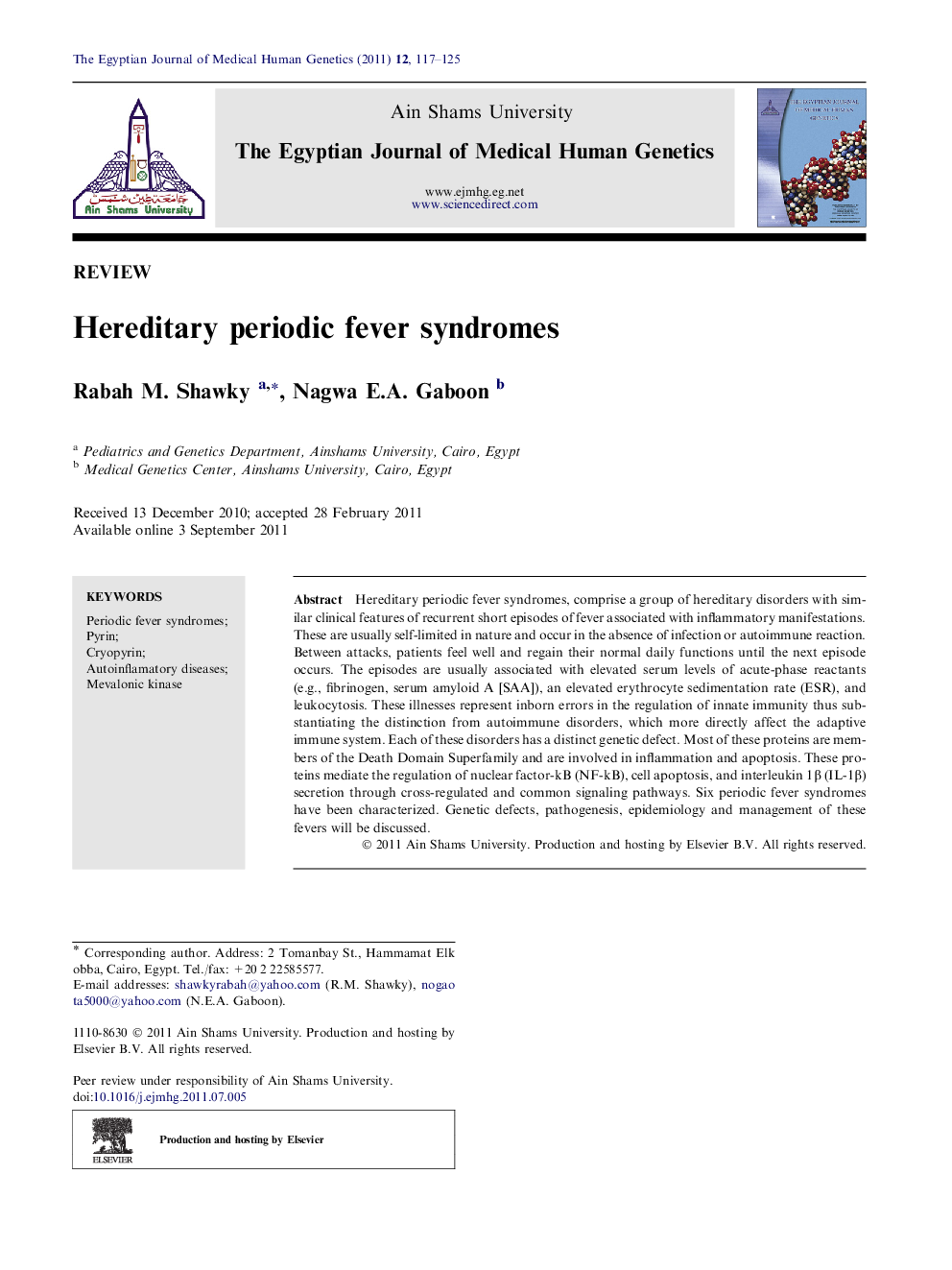| کد مقاله | کد نشریه | سال انتشار | مقاله انگلیسی | نسخه تمام متن |
|---|---|---|---|---|
| 2178264 | 1549637 | 2011 | 9 صفحه PDF | دانلود رایگان |

Hereditary periodic fever syndromes, comprise a group of hereditary disorders with similar clinical features of recurrent short episodes of fever associated with inflammatory manifestations. These are usually self-limited in nature and occur in the absence of infection or autoimmune reaction. Between attacks, patients feel well and regain their normal daily functions until the next episode occurs. The episodes are usually associated with elevated serum levels of acute-phase reactants (e.g., fibrinogen, serum amyloid A [SAA]), an elevated erythrocyte sedimentation rate (ESR), and leukocytosis. These illnesses represent inborn errors in the regulation of innate immunity thus substantiating the distinction from autoimmune disorders, which more directly affect the adaptive immune system. Each of these disorders has a distinct genetic defect. Most of these proteins are members of the Death Domain Superfamily and are involved in inflammation and apoptosis. These proteins mediate the regulation of nuclear factor-kB (NF-kB), cell apoptosis, and interleukin 1β (IL-1β) secretion through cross-regulated and common signaling pathways. Six periodic fever syndromes have been characterized. Genetic defects, pathogenesis, epidemiology and management of these fevers will be discussed.
Journal: Egyptian Journal of Medical Human Genetics - Volume 12, Issue 2, November 2011, Pages 117–125